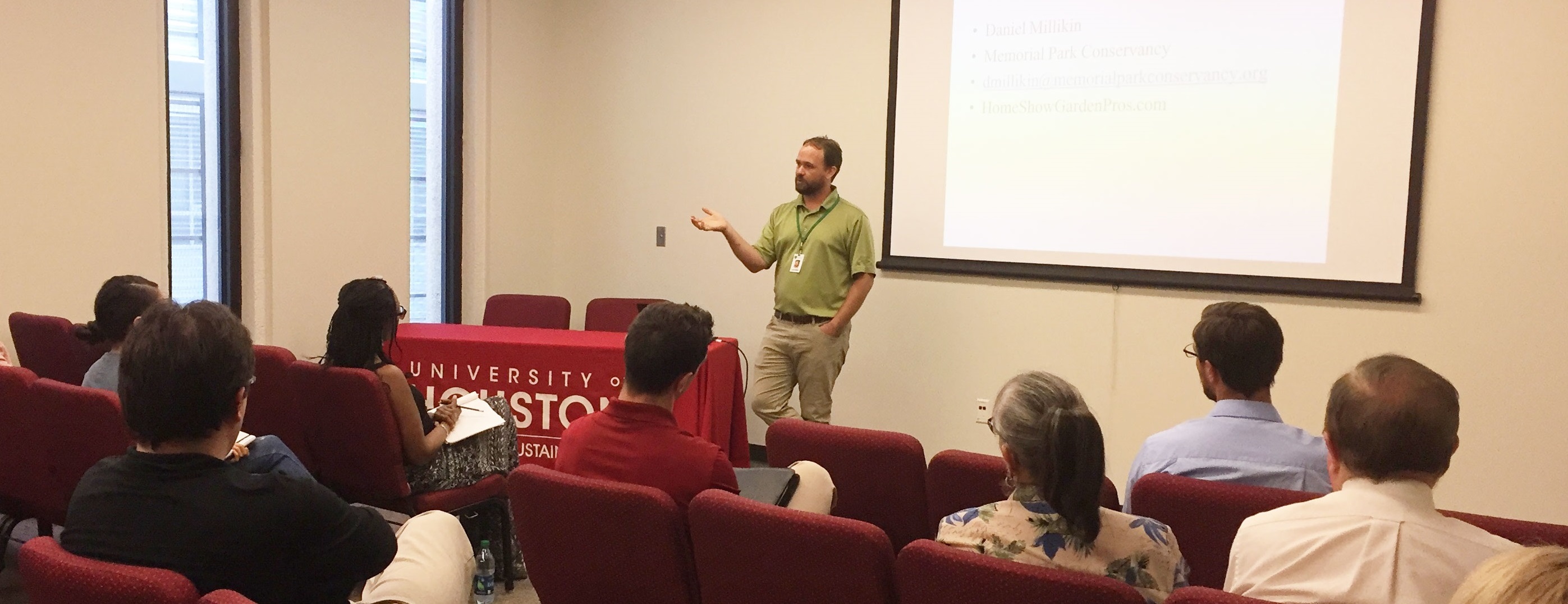
On Thursday September 6, 2018, The University of Houston Office of Sustainability officially relaunched the Sustainability Meetup series. Starting in 2015 as a conversation with architect Bruce Race, the meetups are designed to make it “easier for people interested in sustainability issues to connect with each other and learn about pressing issues that impact the University of Houston campus, the community and the world”. This time, the Office was delighted to partner with Memorial Park Conservancy to educate the campus community about the vital role of soil biology in sustainability.
Conservation Program Manager Daniel Millikin was the featured speaker for the September meetup and has roots deep in soil science. Prior to joining the Memorial Park Conservancy staff, he served as the Lead Horticulturalist for Hermann Park Conservancy, and previously operated an organic, edible-focused landscaping company.
"So many soil testers and supposed experts out there are still only looking at soil chemistry when we are finding out more and more that it’s the biology that counts.” Says Millikin.

The essence of his talk was the vital role of food webs and the “city of life” that build up to the plants we grow (graphic on the right). Many conventional fertilizers are salt based, or break down into salts Millikin explained. It turns out, most organisms that work in symbiosis with the plant cannot live in a salt heavy environment.
Tiny bacteria, nematodes, and insects live eat and breathe around root systems of plants. This activity not only feeds the plant with its waste (humic acid), they also make tiny tunnels in the soil that bring air and water to the plant. If you want to be a sustainable gardener, you need to do all you can to foster this health web of life in your soil.
“Once a conventional fertilizer breaks down, it leaves the soil stripped of all that good web of life that actually keeps weeds and other pests out. So when you use these products, you’re actually creating soil where only weeds can successfully grow.” Millikin explained further.
The takeaway conclusion was that humic acid (compost) is the best way to build a healthy soil. That web of life mentioned above is what makes good compost dark, and hot because it is full of living organisms breaking material down for plants to use. If you would like to hear more pro tips from Dany, be sure to check out his radio show “HomeShow Garden Pros” on SportsRadio 610 every Saturday morning, or visit their webpage: https://homeshowgardenpros.com/
The Office of Sustainability is excited to continue the Meetups on October 9th with Air Alliance Houston. Be sure to RSVP on the Facebook event page for updates and more!